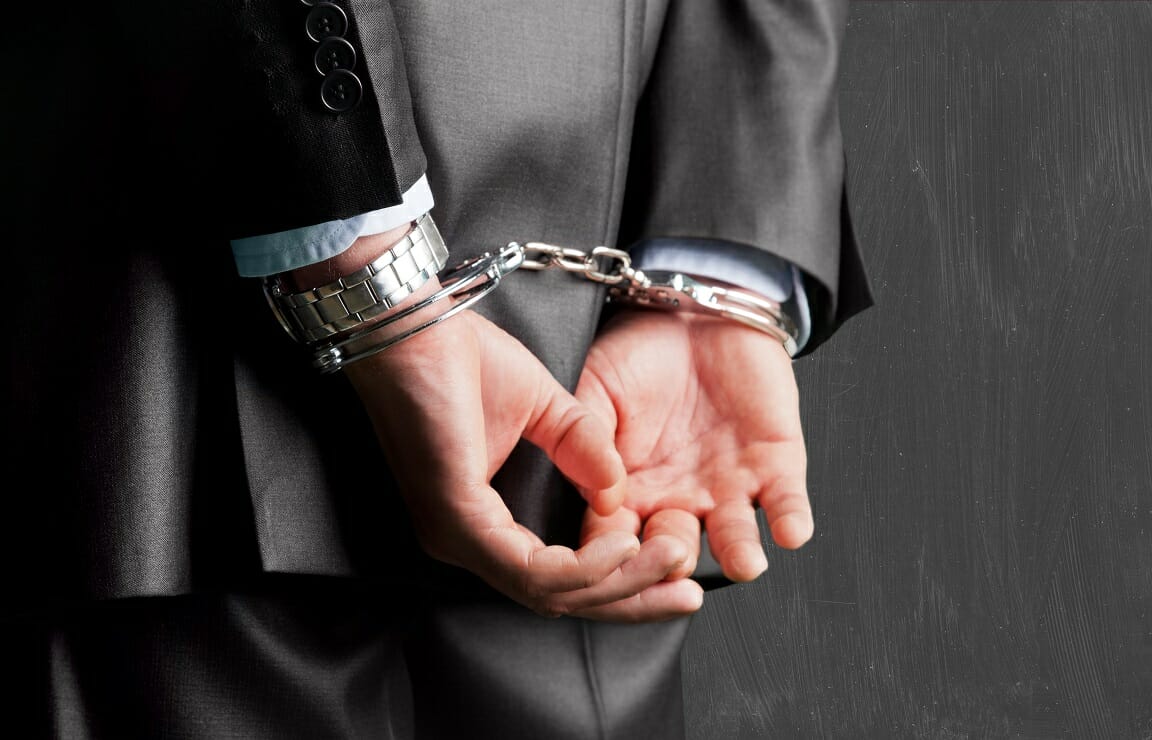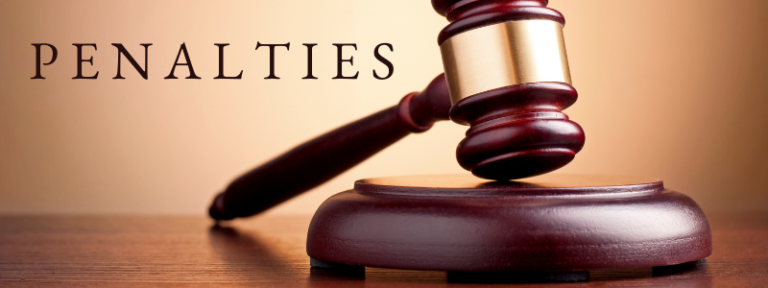Contents
Introduction
The Maximum Penalty for Insider Trading” explores the crucial topic of insider trading and emphasizes the significance of enforcing severe penalties for such illicit activities. Trading shares and other kinds of assets on the basis of important, non-public information, known as “insider trading,” can distort market efficiency and shake investor confidence. Establishing and upholding a tight legal framework with severe penalties for violators is crucial for discouraging such unethical conduct.
Facing The Consequences: The Maximum Penalty For Insider Trading
Gordon Gekko, the main antagonist in the 1980s film “Wall Street,” famously said, “Greed, for not having a more appropriate term, is good.” While this may strike a chord with some, it aptly describes the motivation for insider trading: the desire to enrich oneself at the expense of others. Insider trading may seem glamorous on paper, but its real-world repercussions are anything but. This article will address the obstacles and recent advancements in the fight against insider trading, as well as look into the legal framework around insider trading and throw light on the maximum penalties imposed on offenders, review high-profile instances, and assess the sanctions issued in each.
Legal Framework For Insider Trading
Overview Of Relevant Laws And Regulations
In the United States, insider trading is governed by the Securities and Exchange Act of 1934, in England and Wales, the Financial Services and Markets Act of 1934 ( (the Act), and the Australian by Corporations Act. Each of these laws regulates the practice of insider trading in a different manner.
Explanation Of The Securities Exchange Act Of 1934
U.S. citizens should be aware of their rights and responsibilities under the Securities Exchange Act of 1934. As a result, insider trading is reduced and the public is made aware of the actions and disclosures of publicly traded corporations. Section 10(b) of the Act and the related Rule 10b-5 were created to prohibit insider trading.
Role Of The Securities And Exchange Commission (Sec)
The SEC is the primary agency in the US charged with enforcing compliance with securities laws. It’s crucial for monitoring market activity and making sure disclosure laws are followed, as well as for investigating and prosecuting insider trading crimes. The SEC has the authority to bring civil enforcement proceedings and impose fines for insider trading breaches.
Relevance Of The Dodd-Frank Wall Street Reform And Consumer Protection Act
The Dodd-Frank Act introduced significant changes to the banking sector as a response to the global financial crisis of 2008. By strengthening the authority of regulatory agencies and making it simpler for them to enforce insider trading regulations, protecting whistleblowers, and increasing the severity of penalties for securities crimes, the law was a net positive for the protection of investors and the integrity of the capital markets.
Maximum Penalties For Insider Trading

Criminal Penalties
1. Explanation Of Potential Imprisonment Terms
Potential prison terms for insider trading depend on the nature of the offense and the jurisdiction in which it was committed. Insider trading convictions in the United States, for instance, carry prison terms of few months to several years.
2. Fines And Monetary Sanctions
People convicted of insider trading face the possibility of imprisonment as well as steep fines and other monetary sanctions. The costs of these punishments frequently outweigh the benefits of engaging in illicit activities. The repercussions are meant to serve as a deterrent and make up for the losses that the market and affected investors incurred.
Civil Penalties
1. Sec Enforcement Actions And Disgorgement Of Profits
Civil fines, such as those administered by the Securities and Exchange Commission (SEC) in the United States, are another possible outcome of insider trading offenses. Most of the time, these penalties are imposed to restore market equity after the havoc that insider trading has wreaked. A typical kind of civil punishment for wrongdoing is “disgorgement of ill-gotten wealth,” which requires the offender to return any ill-gotten gains. The purpose of disgorgement is to compensate for wrongdoing and prevent the perpetrator from profiting from it.
2. Cease-And-Desist Orders And Injunctive Relief
The SEC has the authority to issue “cease and desist” orders to put a stop to ongoing illegal insider trading and prevent similar activity in the future. Injunctive relief can also be utilized to prevent an offending party from engaging in the same conduct in the future. The purpose of these monetary fines is to put an immediate end to criminal behavior and discourage its repetition.
Regulatory Consequences
1. Suspension Or Revocation Of Professional Licenses
It is a major issue that makes it difficult for employees to work in their fields of financial business when their licenses are suspended or revoked. In cases of insider trading, the main reason to suspend or revoke a license is to safeguard investors and maintain the stability of the financial markets. Officials take steps to prevent insider traders from gaining employment in positions requiring secrecy, fiduciary responsibility, and ethical behavior. They accomplish this by taking away or suspending driver’s licenses. The perpetrators of wrongdoing will face consequences, but they won’t repeat those wrongdoings.
A professional’s ability to practice their chosen profession is temporarily revoked when their license is suspended. The individual is unable to perform their duties or render the services for which they are certified during this period. The severity of the offense, local regulations, and the discretion of the licensing board all factor into the decision as to how long a license will be suspended for.
However, once a professional license is revoked, the holder is permanently barred from engaging in that line of employment. When a license is revoked, the holder is prohibited from engaging in any activity that necessitates the use of that license. Those who have a history of criminal behavior or who are facing more serious charges may face revocation.
Professional license revocation or suspension is a severe punishment that sends a message to the financial industry and the public that insider trading is not tolerated. It demonstrates how crucial it is to maintain honesty and trust in the financial markets, discouraging others from engaging in similar behavior.
2. Bar From Participating In Securities Markets
Individuals found guilty of insider trading may be barred from participating in securities markets altogether. This can include being prohibited from serving as a director or officer of a public company, working in investment banking or advisory roles, or engaging in securities trading activities. Such prohibitions aim to protect the integrity of the financial markets and prevent recidivism.
High-Profile Cases And Their Penalties
Martha Stewart Case
In recent years, the Martha Stewart case has become one of the most high-profile insider trading scandals. Stewart, a successful entrepreneur and TV personality, was found guilty of obstruction of justice in 2004 for her part in an insider trading probe. She was convicted on criminal charges and given a two-year supervised release after serving five months in prison. She also repaid fines and gave back the money she made via her unlawful dealings.
Raj Rajaratnam Case
The hedge fund manager at the center of the Raj Rajaratnam case was implicated in an extensive insider trading conspiracy. After a highly publicized trial in 2011, Rajaratnam was found guilty and given a then-record prison term of 11 years. The case demonstrated the seriousness of insider trading activities and the potential repercussions for those who commit them.
Sac Capital Advisors’ Case
An extensive insider trading conspiracy, conducted by a large hedge fund, was uncovered in the SAC Capital Advisors case. The company closed its investment advisory division after admitting guilt on criminal charges and agreeing to pay a hefty fine of $1.8 billion. This case demonstrated that entire companies can be held liable for insider trading.
Mitigating Factors And Defense Strategies
Cooperation With Authorities
In some cases, individuals involved in insider trading may choose to cooperate with authorities by providing valuable information or assisting in investigations. Cooperation can potentially lead to reduced penalties or even immunity from prosecution, depending on the extent of cooperation and the significance of the information provided.
Demonstrating A Lack Of Intent Or Knowledge
Defense strategies in insider trading cases may involve arguing that the individual did not possess material non-public information or that they lacked the intent to commit a crime. Proving a lack of intent or knowledge can be challenging, requiring a thorough examination of the circumstances surrounding the trades and the evidence presented.
Challenging Evidence Or Procedural Flaws
Defense attorneys may challenge the admissibility or credibility of evidence presented in insider trading cases. They may also scrutinize the investigative methods used or procedural aspects of the case. Identifying flaws or errors in the evidence or procedures can potentially weaken the prosecution’s case or lead to dismissals.
Recent Developments And Future Outlook
Enhanced Enforcement Efforts By Regulatory Agencies
The Securities and Exchange Commission (SEC) and other regulatory agencies have increased their focus on uncovering, investigating, and punishing insider trading instances. They have prioritized working with other law enforcement authorities, raised the amount of money allocated to market surveillance, and implemented cutting-edge technologies for monitoring trade operations. These measures are being taken to strengthen disincentives and safeguard the market.
Potential Legislative Changes To Increase Penalties
In response to the persistent challenge of insider trading, lawmakers may consider legislative changes to strengthen penalties. This could involve higher fines, longer prison sentences, or additional regulatory measures to prevent and punish insider trading more effectively. Such changes would underscore the seriousness of the offense and the commitment to deterring insider trading.
International Cooperation In Combating Insider Trading
Insider trading often transcends national borders, requiring international cooperation to investigate and prosecute offenders. Regulatory bodies and law enforcement agencies have been actively collaborating on information sharing, joint investigations, and coordinated enforcement actions. This global cooperation aims to address cross-border insider trading and ensure the consistent application of penalties.
Conclusion
Facing the maximum penalties for insider trading is crucial in preserving the fairness and integrity of financial markets. Imposing severe consequences, including imprisonment, fines, disgorgement of profits, and license suspension or revocation, sends a strong deterrent message. Such penalties emphasize the seriousness of insider trading and aim to protect investors and maintain market integrity. By continuing to enforce strict consequences, regulators and authorities strive to create a level playing field, deter future misconduct, and uphold the principles of transparency and trust in the financial industry.

